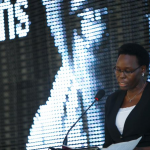When Uganda reported its first #Covid-19 case on March 21, 2020, its nationals were not sure of what would happen thereafter. The population was not informed about the then new disease which had forced many powerful countries into total lockdown.
Covid-19 was first reported to the World Health Organization (WHO) on 31 December 2019 after it had been confirmed in Wuhan City and Hubei Province of China.
Before registering the first case in Uganda, President Yoweri Museveni and the ministry of health had picked a leaf from European and Asian countries and laid a strategy on how best they could fight it.
Among the measures, the country adopted the Standard Operating Procedures (SOP) which include; frequent washing of hands or sanitising, wearing facemasks and keeping social distance, setting up isolation centers, recruiting more health workers and equipping health facilities.
On the 22nd March 2020, Museveni imposed a total lockdown on all major sectors of the economy such as transport, limiting movements except the essential workers who included; health personnel, Journalists and Market vendors. The president believed that limiting movements would minimize chances of spreading the virus.
Night clubs, large gatherings like wedding ceremonies, church services, political rallies and others are also put under lockdown. The first lockdown lasted for nearly three months. The second lockdown lasted two months. Later Ugandans adapted to living and working in the unprecedented Covid-19 era.
After confirming first Covid-19 case, a handful of companies like Nytil, Jalshi Care Uganda SMC LTD, Southern range Nyanza Limited, Jude color solutions Limited and others taped into the opportunity there by venturing into production of non-medical masks to bridge the gap of limited supply of foreign companies Manufacturing medical facemask.
In the same line, Uganda National Bureau of Standards (UNBS) cleared Saraya Manufacturing (U) Limited, Jalshi Care Uganda SMC LTD, Hoima Sugar Limited, Movit Products Limited, Mukwano Personal Care Products Limited and Premier Distillers Limited to start the manufacturing of sanitizers.
The masks and sanitizers are currently sold in pharmacies, Shops and by vendors. The dealers and individuals reaped big from the onset of the pandemic since all the products were in high demand.
In the wake of the pandemic, the ministry of health announced Lancet, Test and Fly, Makerere University Hospital and Uganda Virus Research Institute (UVRI) as the fully flagged laboratories mandated for testing Covid-19 in Uganda. According to the World Health Organisation (WHO), since the outbreak of the pandemic, Uganda has registered 163915 Covid-19 cases including 3596 deaths.
This paper moved around Kampala to establish why many people discarded SOP components of sanitising and wearing facemasks. In a quick survey, The Observer established that one in 30 people wear facemasks in Kampala and most of the hand washing facilities at Market places, taxi stages and parks ran dry and the operators don’t remember when they last refilled them. We also learnt that at atleast eight in 10 boda-boda riders wear facemasks. We learnt that 100% of the population sanitise and wear masks at the strict places like supermarkets, health facilities and only at Namirembe Cathedral, St. Mary’ and All Saints Church, Nakasero.
Interviewed for this story Maria Birungi who spoke to us on behalf of Jalshi Care Uganda SMC LTD which produces Avion sanitizers and facemasks, said during the first wave of Covid-19, they produced products but to their dismay, they sold few of them because the population was not used to the situation.
“In the second wave, we produced and sold in large quantities because people had learnt how to live with the virus. As the second wave goes down, people are not buying both the sanitizers and the maskers,” she said.
Despite the government’s efforts to encourage people to observe SOPs, Maria said that their clients claim that Covid-19 no longer exists in the country and they resorted to living a normal life.
A doctor at Makerere University Hospital who spoke on point of anonymity said during the first wave of the pandemic, they received relatively few patients because they were not willing to pay huge amounts of money for the sake of knowing their Covid-19 status.
He said at that time in 2020, a Covid-19 could go for Shs 200,000 and above. However during the second wave which happened in 2021, they received patients every other time and reached a point when they could not manage them.
“We are receiving a good number of patients because we charge low costs of about Shs 180,000 compared to other testing centers in Kampala. Initially the facility was charging Shs 150,000. We receive all categories of people from government dignitaries to common man. Because a Polymerase Chain Reaction (PCR) test is required at every Airport, most of the patients take these test in preparation to leave the country,” he said.
Rachael Namwanje, who vends face masks at Wandegeya traffic lights, said she started the business last year. She would make profits of at least Shs 30,000 every day however the business has gone down and it is hard for her to sell 15 facemasks.
“The business would still stand but with the innovations and the emergency of the various Covid-19 vaccines, people feel they are safe because they took jabs,” she said.
She blamed the collapse of Covid-19 businesses on the government’s failures to enforce the SOPs in place to stop the spread of the virus. “People are not buying nor wear mask though the virus lives with us in the community,” she said.
The manager of one of the prominent supermarkets in Ntinda who didn’t want his identity revealed said the business went down.
“As Covid-19 cases went down, there is a belief that the virus is not as strong as it was and it is not with us that is why there is a low demand for both the sanitizers and the facemask,” he said.
He said some clients claim that despite having many players producing both products, the costs of sanitizers and masks are still high given the economic standing of the country where prices of essential commodities continue to soar every other day.
Mr. Fortunate Collins, the General Manager at Saraya Manufacturing (U) Ltd said their experience with the first lockdown was challenging. At the time, they were the only manufacturer of the Alcohol Based Hand Sanitisers in the country.
“We used to supply to Kenya through our sister company called Saraya Kenya Limited and to South Sudan through our appointed distributors. The period presented unprecedented demand that our installed capacity could not meet. This led to increased costs of production as we had to hire extra manpower and to work night shifts and operate the factory on a 24Hr basis, yet we never increased the cost of the product,” he said.
“As the world went into Lockdown, we ran out of some raw materials like Allantoin which we could only get from Japan, causing further delays in meeting the demand on the market. Packaging materials like bottles also ran because our local supplier could not meet the demand and we resorted to importing bottles from our sister company in Malaysia, which was both costly but also time consuming. In all, we never increased the final cost of the product,” he said.
Since Saraya was the only manufacturer at the beginning of the lockdown, their sales were more than eight times the previous ones, which was not the case with the second lockdown since UNBS certified more than 70 companies to manufacture the sanitisers.
Fortunate said the demand has significantly gone down compared to the previous two lockdowns. He attributes this to the reducing numbers of Covid-19 cases to reduced risks.
He said that they still have a fair share of sales from their traditional customers like hospitals and other international organisations like WHO and ICC.
Since their operations and existence are not premised on Covid-19, but rather to be a long term player in public health, fortunate said they have plans to scale up production and venture into other public hygiene products which they import from their subsidiaries.







